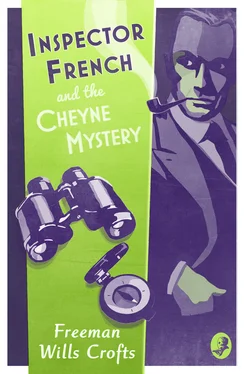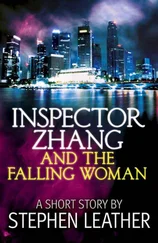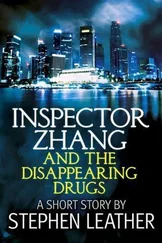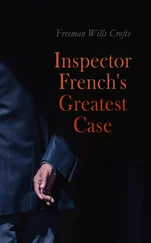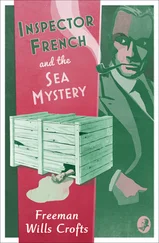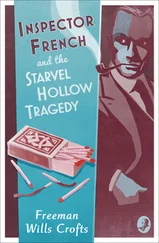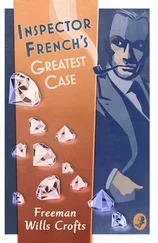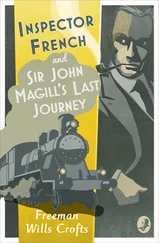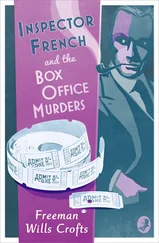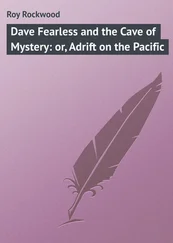As Price finished speaking he unlocked and threw open the cabin door, motioning his prisoner to follow him on deck. There Cheyne saw that they were far down the estuary, in fact, nearly opposite Warren Lodge and a mile or more from the town.
‘I thought you were going to take me to Johnson’s jetty,’ he remarked.
‘An obvious precaution,’ the other returned smoothly. ‘I trust you won’t mind.’
The freshness and the freedom of the deck were inexpressibly delightful to Cheyne after his long confinement in the stuffy cabin. He stood drawing deep draughts of the keen invigorating air into his lungs, as he gazed at the familiar shores of the estuary, lighted up in the brilliant April sunlight. Nature seemed in an optimistic mood and Cheyne, in spite of his experiences and Price’s gruesome remarks, felt optimistic also. He still felt he would devote all his energies to getting even with the scoundrels who had robbed him, but he no longer regarded them with a sullen hatred. Rather the view of the affair as a game in which he was pitting his wits against theirs gained force in his mind, and he looked forward with zest to turning the tables upon them in the not too distant future.
In the launch’s dinghy, which was made fast astern, was Lewisham, engaged in untying the painter of a second dinghy which bore on its stern board the words ‘S. Johnson, Dartmouth.’ The explanation of the starting and stopping of the motor now became clear. The conspirators had evidently gone in to pick up this boat and had towed it down the estuary so as to ensure their escape before Cheyne could reach the shore to lodge any information against them.
The painter untied, Lewisham passed it aboard the launch and Price, drawing the boat up to the gunwale, motioned Cheyne into it.
‘As I said, I’m sorry we shall have to ask you to row yourself ashore, but the run of the tide will help you. Good-bye, Mr Cheyne. I deeply regret all the inconvenience you have suffered, and most earnestly I urge you to regard the warning which I have given you.’
As he spoke he threw the end of the painter into the dinghy and the launch’s motor starting, she drew quickly ahead, leaving Cheyne seated in the small boat.
Full of an idea which had just flashed into his mind, the latter seized the oars and began pulling with all his might not for Johnson’s jetty, but for the shore immediately opposite. But try as he would, he did not reach it before the launch Enid had become a mere dot on the seaward horizon.
Cheyne’s great idea was that instead of proceeding directly to the police station and lodging an information against his captors, as he had at first intended, he should himself attempt to follow them to their lair. To enter upon a battle of wits with such men would be a sport more thrilling than big game hunting, more exciting than war, and if by his own unaided efforts he could bring about their undoing he would not only restore his self-respect, which had suffered a nasty jar, but might even recover for Arnold Price the documents which he required for his claim to the barony of Hull.
Whether he was wise in this decision was another matter, but with Maxwell Cheyne impulse ruled rather than colder reason, the desire of the moment rather than adherence to calculated plan. Therefore directly a way in which he could begin the struggle occurred to him, he was all eagerness to set about carrying it out.
The essence of his plan was haste, and he therefore bent lustily to his oars, sending the tiny craft bounding over the wavelets of the estuary and leaving a wake of bubbles from its foaming stem. In a few minutes he had reached the shore immediately beneath Warren Lodge, tied the painter round a convenient boulder, and racing over the rocky beach, had set off running towards the house.
It was a short though stiff climb, but he did not spare himself, and he reached the garden wall within three minutes of leaving the boat. As he turned in through the gate he looked back over the panorama of sea, the whole expanse of which was visible from this point, measuring with his eye the distance to Inner Froward Point, the headland at the opposite side of the bay, around which the Enid had just disappeared. She was going east, up channel, but he did not think she was travelling fast enough to defeat his plans.
Another minute brought him to the house, and there, in less time than it takes to tell, he had seen his sister, explained that he might not be back that night, obtained come money, donned his leggings and waterproof, and starting up his bicycle, had set off to ride into Dartmouth.
Pausing for a moment at the boat slip to tell Johnson of the whereabouts of his dinghy, he reached the ferry and got across the river to Kingswear with the minimum of delay possible. Then once more mounting, his machine, he rode rapidly off towards the east.
The land lying eastward of Dartmouth forms a peninsula shaped roughly like an inverted cone, truncated, and connected to the mainland by a broad isthmus at the north-west corner. The west side is bounded by the river Dart, with Dartmouth and Kingswear to the south-west, while on the other three sides is the sea. Brixham is a small town at the north-east corner, while further north beyond the isthmus are the larger towns of Paignton and, across Tor Bay, Torquay.
Most of the ground on the peninsula is high, and the road from Kingswear in the south-west corner to Brixham in the north-east, crosses a range of hills from which a good view of Tor Bay and the sea to the north and east is obtainable. Should the Enid have been bound for Torquay, Teignmouth, Exmouth or any of the seaports close by, she would pass within view of this road, whereas if she was going right up Channel past Portland Bill she would go nearly due east from the Froward Points. Cheyne’s hope was that he should reach this view-point before she would have had time to get out of sight had she been on the former course, so that her presence or absence would indicate the route she was pursuing.
But when, having reached the place, he found that no trace of the Enid was to be seen, he realised that he had made a mistake. From Inner Froward Point to Brixham was only about seven miles, to Paignton about ten, and to Torquay eleven or twelve. The longest of these distances the launch should do in about twenty-five minutes, and as in spite of all his haste no less than forty-seven minutes had elapsed since he stepped into the dinghy, the test was evidently useless.
But having come so far, he was not going to turn back without making some further effort. The afternoon was still young, the day was fine, he had had his lunch and cycling was pleasant. He would ride along the coast and make some inquiries.
He dropped down the hill into Brixham, and turning to the left, pulled up at the little harbour. A glance showed him that the Enid was not there. He therefore turned his machine, and starting once more, ran the five miles odd to Paignton at something well above the legal limit.
Inquiries at the pier produced no result, but as he turned away he had a stroke of unexpected luck. Meeting a coastguard, he stopped and questioned him, and was overjoyed when the man told him that though no launch had come into Paignton that morning, he had about three-quarters of an hour earlier seen one crossing the bay from the south and evidently making for Torquay.
Quivering with eagerness, Cheyne once more started up his bicycle. He took the three miles to Torquay at a reckless speed and there received his reward. Lying at moorings in the inner harbour was the Enid .
Leaving the bicycle in charge of a boy, Cheyne stepped up to a group of longshoremen and made his inquiries. Yes, the launch there had just come in, half an hour or more back. Two men had come off her and had handed her over to Hugh Leigh, the boatman. Leigh was a tall stout man with a black beard: in fact, there he was himself behind that yellow and white boat.
Читать дальше
